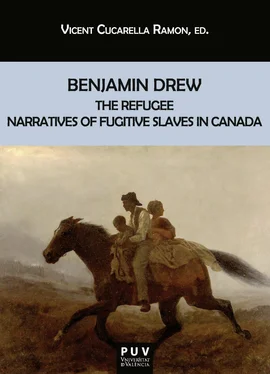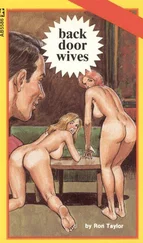Vicent Cucarella Ramón - Benjamin Drew
Здесь есть возможность читать онлайн «Vicent Cucarella Ramón - Benjamin Drew» — ознакомительный отрывок электронной книги совершенно бесплатно, а после прочтения отрывка купить полную версию. В некоторых случаях можно слушать аудио, скачать через торрент в формате fb2 и присутствует краткое содержание. Жанр: unrecognised, на английском языке. Описание произведения, (предисловие) а так же отзывы посетителей доступны на портале библиотеки ЛибКат.
- Название:Benjamin Drew
- Автор:
- Жанр:
- Год:неизвестен
- ISBN:нет данных
- Рейтинг книги:3 / 5. Голосов: 1
-
Избранное:Добавить в избранное
- Отзывы:
-
Ваша оценка:
- 60
- 1
- 2
- 3
- 4
- 5
Benjamin Drew: краткое содержание, описание и аннотация
Предлагаем к чтению аннотацию, описание, краткое содержание или предисловие (зависит от того, что написал сам автор книги «Benjamin Drew»). Если вы не нашли необходимую информацию о книге — напишите в комментариях, мы постараемся отыскать её.
Benjamin Drew — читать онлайн ознакомительный отрывок
Ниже представлен текст книги, разбитый по страницам. Система сохранения места последней прочитанной страницы, позволяет с удобством читать онлайн бесплатно книгу «Benjamin Drew», без необходимости каждый раз заново искать на чём Вы остановились. Поставьте закладку, и сможете в любой момент перейти на страницу, на которой закончили чтение.
Интервал:
Закладка:
Frederick Black rightly expresses that “[m]uch of the value of The Refugee derives from its inclusion of the testimony of many ex-slaves who would have remained unknown in American circles but for Drew’s book. In addition, information is presented on a fascinating variety of unique types of personalities and experiences” (284). Black’s reference to the visibility of the fugitives’ voices and experiences couches Drew’s collection within the frame of slave narratives but with a distinct touch. Certainly, the fact that these cited critics point to the spoken testimonies places A North-Side View of Slavery: The Refugee, or the Narratives of Fugitive Slaves in Canada in a singular position within the canon of slave narratives as they have been studied. In fact, the heterogeneous cross-border nature of the collection problematizes its inclusion in the canon of slave narratives. In this respect, George Elliott Clarke’s groundbreaking article “‘This is No Hearsay’: Reading the Canadian Slave Narratives” is fundamental to keep on conceptualizing and establishing a Canadian slave narrative tradition. Clarke argues against the Americanness of the genre and claims that those critics who have considered the slave narratives as solely American, blatantly omit other texts about captivity and enslavement that would prove them wrong. As an example, he refers to Henry Louis Gates’s appropriation of these narratives and his authorized statement that “the African person’s enslavement in the New World” are represented by the “black slaves in the United States,” which leads to the acceptance, Clarke laments, that “the African itself is conflated with American” (9).
Conversely, the Black Canadian scholar directs his standpoint to the crossborder and transnational turn in North American studies and counters this assumption by asserting the sheer existence of a Canadian slave narrative tradition that “is ignored as a genre of Victorian-era Canadian literature (1837-1901)” (“This is No Hearsay” 7). This recognition debunks the assumption that this body of texts is simply a “species of Americana” (“This is No Hearsay” 7) since this thought has precisely misplaced Canada from this tradition. Clarke criticizes the U.S. monopoly of the genre whilst also holds Canadian scholarly responsible for outsourcing slave narratives as “American and alien” (“This is No Hearsay” 11). Moreover, he dug into the history of nineteenth-century British North American literary production and invites to recognize “the host of slave narratives, written or spoken and transcribed, and sometimes published, in Canada, dating to pre-andpost U.S. Civil War periods, that are (or, rather, should be), therefore, integral to conceptions of the canon of Victorian Canadian literature” (“This is No Hearsay” 14). He goes as far as to provide a list of eighteen narratives printed between 1838 and 1901, half of which were published in Canada, which constitute a proof that these slaves narratives were a part of Canadian writing and publishing, and that they also act as a cultural remainder of the importance of these texts for the Canadian literary production. 11In this list of distinctly “Canadian” slave narratives (“This is No Hearsay” 18), Clarke includes Drew’s A North-Side View of Slavery: The Refugee, or the Narratives of Fugitive Slaves in Canada .
Considering Henry Louis Gates remarks that narratives penned by slaves were fundamentally created “to testify against their captors and to bear witness to the urge of every black slave to be free and literate and accorded all the ‘rights of man’” (xi), Benjamin Drew’s volume’s uniqueness attests to the refugees’ unusual accounts of life during and after slavery through their related experiences and offer a wider and more acute picture of slavery and post-slavery life. Therefore, when it comes to define Drew’s book it is interesting to turn to Nicole Aljoe and Ian Finseth’s musings on the nature of slave narratives. They maintain that considering the “fundamental diversity” of slave testimonies and life accounts across the Black Atlantic routes, there should be an extension of the genre label, which they deem restrictive. For Aljoe and Finseth, there are plenty of slave testimonies that differ in form and message and that are, either way, subsumed under the label of “slave narrative”. Following this contention, Sidonie Smith and Julia Watson propose to shift the term “slave narratives” to focus the attention not on the slaves’ condition but on their experiences and thus proffer the denomination “life narratives” (3), aiming to lay emphasis on personal accounts of slaves that are not isolated or exceptional but rather put forth a “communal discourse of multiple identity” (104). Drew’s collection adheres to this definition and, in so doing, challenges what had thus far been understood as slave narratives and expands their meaning by putting into words complex and wrapped up life stories. In consequence, the book constitutes a “distinct set of settler narratives” (Clarke, “Introduction” 11) shaped as a branch that grows in the same trunk that slave narratives or, in this case, Canadian slave narratives.
That Drew himself transcribed the interviews, and out of this procedure the voices of the refugees or ex-slaves appear mediated and edited by the interviewer, seems to complicate the honesty of the testimonies, and opens the door to question the purpose of the collection. As Clarke openly states, “Drew’s anthology of African American testimony is, to put it plainly, propaganda” (“Introduction” 10). Along similar lines, Edelstein perceives an ideologically based withdrawal, which is admittedly typical of slave narratives, that hints at Drew’s editing move, and warns us that “there are some sensitive issues to northern public opinion that remain either absent or disguised”, citing as examples how “the book does not candidly treat marriage, sexual promiscuity, and miscegenation” (xxii). Surprisingly, they seem to overlook that what lies underneath these political strategies is the way to overcome the distrust of the reader. Most early Black autobiographical narratives were indeed dictated to a white amanuensis or editor who selected and arranged the slave’s oral report, nuanced the style and wording, and provided an interpretive context in the preface and in the choice of metaphors that gave shape and meaning to the former slave’s story mindful of the readership it was about to encounter. Consequently, as William L. Andrews has pointed out, in much early African American autobiography and slave narratives, it is often impossible to separate the voice of the Black autobiographical subject from that of the white abolitionist recording and interpreting the story (vii-xx).
Consequently, slave narratives, aided by the editing activity of abolitionists and their idiosyncratic viewpoint, told slaves’ stories by erasing the most ideologically problematic issues in such a way that the readers did not turn away but rather decided to step into the story to “hear” what the author was saying. This literary and ideological move served a twofold purpose: to facilitate the passing on of their stories and to visualize the abolitionist propaganda attached to them. As a (Canadian) slave narrative, Drew’s book is no exception to this exercise and exemplifies this literary ventriloquism. Being a mediated text in which the slaves were previously interviewed to, later on, find their stories published, the writing of the book has raised some objections. The fugitives’ voice is heard through Drew’s interviews although the voice of the abolitionist is omitted in the text so that the only message conveyed is that of the ex-slave. Although this literary exercise has been used to question the validity of Drew’s book, the little biographies he offered acquire a worthy literary dimension if read using Foucault’s critique to the Barthesian scriptor . Rather than considering that caught under the weight of his immense vocabulary, the scriptor , without words he can call his own, may well be unable to be held accountable for the meaning he inscribes, Foucault vindicates the notion of writing as “transpos[ing] the empirical characteristics of the author” (104), who works ideologically even if traces of the author himself are absent. To put it in another way, Foucault thereby moves from the Barthean scriptor as that which conditions readings to the author as a production of the reader and evinces that, even if the author functions to limit the text, it is nevertheless the reader who actively creates that limit and fills its whole meaning. In this manner, the author cannot bear the responsibility for the present and/or absent meaning a writing can convey. This is precisely what Drew’s text upholds.
Читать дальшеИнтервал:
Закладка:
Похожие книги на «Benjamin Drew»
Представляем Вашему вниманию похожие книги на «Benjamin Drew» списком для выбора. Мы отобрали схожую по названию и смыслу литературу в надежде предоставить читателям больше вариантов отыскать новые, интересные, ещё непрочитанные произведения.
Обсуждение, отзывы о книге «Benjamin Drew» и просто собственные мнения читателей. Оставьте ваши комментарии, напишите, что Вы думаете о произведении, его смысле или главных героях. Укажите что конкретно понравилось, а что нет, и почему Вы так считаете.











![Benjamin Franklin - Memoirs of Benjamin Franklin; Written by Himself. [Vol. 2 of 2]](/books/747975/benjamin-franklin-memoirs-of-benjamin-franklin-wr-thumb.webp)
![Benjamin Franklin - Memoirs of Benjamin Franklin; Written by Himself. [Vol. 1 of 2]](/books/748053/benjamin-franklin-memoirs-of-benjamin-franklin-wr-thumb.webp)